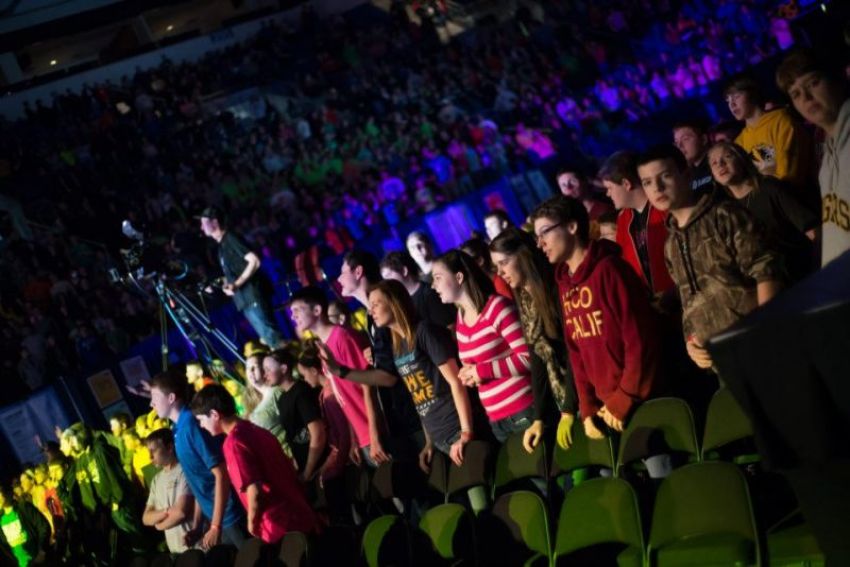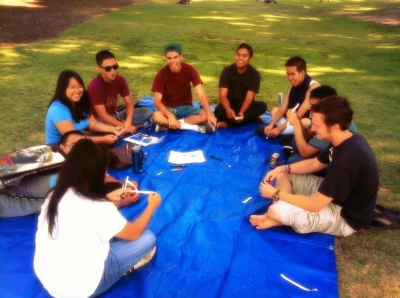How Parents and Churches Should Respond to Moral and Spiritual Confusion of Gen Z

As recent polling suggests that "moral and spiritual confusion" is running rampant among American teenagers today, what should parents and churches do differently to ensure their children are prepared to defend their beliefs when they go to college and face a post-Christian society?
Jonathan Morrow of the Georgia-based Impact 360 Institute apologetics ministry has detailed in an interview with The Christian Post how parents and churches must respond to the needs of Generation Z, which data indicates is the most non-Christian generation in modern U.S. history.

Barna Group research released last month, which was sponsored by the Impact 360 Institute, found that just four percent of Generation Z (born from 1999 to 2015) holds an authentic Christian worldview, even though 59 percent of Generation Z identifies as Christian or Catholic.
Additionally, children in the United States today are more likely than previous generations to identify as either agnostic or a religious "none" as kids today have easier access to alternative ideas and worldviews in today's internet dominated society.
"The moral and spiritual confusion was pretty remarkable," Morrow said of the focus groups conducted as part of the Barna research. "They just were not comfortable making truth claims about much of anything."
How should churches respond?
Morrow, the institute's director of creative strategies, explained that along with declining church attendance, the church experience is often times not fruitful when it comes to teaching children what they believe, the reasons for why they believe it and how to answer some of the hardest questions about their faith.
Although some children today might be involved in certain youth group or small group ministries, Morrow argues that too many churches are trying to entertain the children rather than train them to be disciples of Christ.
For example, he said, some church youth groups services might focus most of their time on praise and worship and only really have 10-15 minutes of actual engagement of the Scripture or for a sermon.
"We have been entertaining them but we haven't been training them," Morrow said. "A lot of churches are well-meaning and they want kids to have a good time. I am all for that but just entertaining them isn't going to produce a lifelong disciple of Jesus and training takes time and intentionality and it is more of a personalized approach."
Morrow also addressed the trend of "anti-intellectualism" within the church that he says has existed for about 100 years.
The Barna research shows that just 28 percent of Generation Z teens feel that the Bible and science are "complementary." By comparison, 45 percent of Baby Boomers said the same.

"It is kind of withdraw from culture in some ways and kind of a read-your-bible-and-pray-only approach," Morrow said. "I affirm the inspiration of the Bible and I teach on it all the time, but if all we are saying to our young people is 'Read your Bible and pray more and hold your breath and try to believe stuff,' that is not going to work. That is why they disengage and they find it irrelevant."
Morrow stated that churches and church leaders need to do a better job helping children understand that science and Christianity are not in conflict.
"Science is the rational investigation of the physical, natural world. That is not in conflict with Christianity but naturalism is as a worldview in conflict with the faith," Morrow stated. "We need to help them learn and spot the differences between a worldview assumption and what the data says."
"When it comes to this faith-science discussion, we need to help them define terms and we need to help them think critically about things and then see how they relate," he added. "So much about modern education is information only. They learn this information and no one shows them how it fits and how to integrate it. We need to help them do that better."
Overall, Morrow said that churches need to reevaluate what their goals are for youth ministry.
"By the time a student graduates high school, what do we want them to look like? What do we want them to know and to be able to do? What do we want them to have practiced?" Morrow explained. "Are we creating environments which will support and lead to [critical thinking]? Or are we creating this feedback loop where it is kind of [just] music and lots of praise and worship time and a short talk and a little bit of time to connect and that is it? Or, are we giving them the time to engage and ask questions?"
Tough questions churches should discuss with the youth groups include: "Why do you think God exists?" "Why do you think we can trust the Bible?" "What do you think about sexuality and gender and what God says about that?"
How should parents respond?
Morrow said that parents play a huge role in shaping their children's worldview.
As fewer children today have a biblical worldview, Morrow says there are things parents can do to ensure their children are brought up with a strong Christian worldview.
He called it the principle of the "3 R's" — reason, relationships, and rhythm.
Morrow stated that parents need to help their children have clarity about the reasons in which they believe the tenants of the Christian faith.
"Knowledge is what authorizes us to act in the world and it gives us confidence. We do this in lots of other areas in life but we don't this as intentionally with our kids as we can," Morrow said. "That means that as parents and young people, we want to have conversations about why believe things as Christians."
Morrow said parents can do this by simply asking their kids questions about what they learned in church and why they believe the things they learned in church. Doing so enables the children to begin thinking critically about their faith so that when such questions are asked of them as adults they are prepared to handle it.
Morrow added that it is crucial for parents to ensure that their children are maintaining strong and positive relationships in four areas of their lives — relationships with parents, with peers, with mentors and with God.
"Proverbs 13:20 says, 'He who walks with wise men will be wise, But the companion of fools will suffer harm,'" Morrow cited.
Morrow also stressed the vital importance of parents helping their children establish a routine that centers around their faith and going to church.
"Practices of Christian life are important because we become what we repeatedly do," Morrow explained. "This isn't to earn salvation or to earn God's love but you won't grow if you don't practice your worldview. Many Christians just discard their worldview because they don't practice it. They don't share their faith. They don't read the Scripture. They don't get involved in a small group or they don't do those consistently so their faith kind of wilts and withers over time."
The Impact 360 Institute, which has a 60-acre campus in Pine Mountain, Georgia, offers summer opportunities for high school students to come for periods of one or two weeks and develop tools to be able to not only defend their faith but to share it with others who don't think like them as well.
The organization also runs a 9-month fellowship opportunity for high school graduates aged 18 to 20. In the program, the students learn things like biblical ethics, discipleship and church formation. The program also gives them 18 college credits.
"What a great opportunity to spend 9 months on the front end of the college experience to kind of solidify who you are, why you believe what you believe and get a vision for that next stage of life before you head into it," Morrow said. "Most students are not ready all the way across the board to make that transition from high school to college, whether it is intellectually, emotionally, spiritually."



























